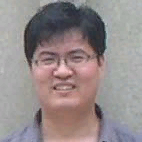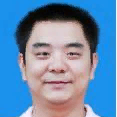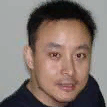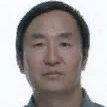International Journal of Image, Graphics and Signal Processing (IJIGSP)
IJIGSP Vol. 3, No. 3, 8 Apr. 2011
Cover page and Table of Contents: PDF (size: 258KB)
Research on Fuzzy Enhancement in the Diagnosis of Liver Tumor from B-mode Ultrasound Images
Full Text (PDF, 258KB), PP.10-16
Views: 0 Downloads: 0
Author(s)
Index Terms
Fuzzy enhancement, liver cancer, neural network, support vector machine, computer aided diagnosis
Abstract
Fuzzy enhancement is applied in computer aided diagnosis of liver cancer from B mode ultrasound images as a pre-processing procedure in this paper. It was evaluated with three classifiers including K means, back propagation neural network and support vector machine using 25 features from first order statistic (FOS), gray-level co-occurrence matrix (GLCM), gray-level run-length matrix (GLRLM), Grey level dependant matrix (GLDM) and LAWS. In the analysis of 166 normal liver tissue, 30 hemangioma and 60 malignant tumor, our method improved the classification accuracy of three classifiers (K means, BP neural network and support machine vector) in distinguishing liver cancer, hemangioma and normal liver cancer from B mode ultrasound images. It is proved that fuzzy enhancement as an efficient preprocessing procedure could be used in the computer aided diagnosis system of liver cancer.
Cite This Paper
Wu Qiu,Feng xiao,Xin Yang,Xuming Zhang,Ming Yuchi,Mingyue Ding,"Research on Fuzzy Enhancement in the Diagnosis of Liver Tumor from B-mode Ultrasound Images", IJIGSP, vol.3, no.3, pp.10-16, 2011. DOI: 10.5815/ijigsp.2011.03.02
Reference
[1]H. Yoshida, D. D Casalino, B. Keserci, A. Coskun, O. Ozturk and A.Savranlar: “Wavelet-packet-based texture analysis for differentiation between benign and malignant liver tumours in ultrasound images”. Phys. Med. Biol,(48),3735-3753,2003.
[2]M.E. Mayerhoefer, M.Breitenseher,G.Amannd, and M. Dominkus. “Are signal intensity and homogeneity useful parameters for distinguishing between benign and malignant soft tissue masses on MR images? Objective evaluation by means of texture analysis”. Magnetic Resonance Imaging, 26(9),1316-1322,2008.
[3]G Xian. “An identification method of malignant and benign livertumors from ultrasonography based on GLCM texture features and fuzzy SVM”. Expert Systems with Applications, (37), 6737-6741,2010.
[4]K Doi, “Computer-aided diagnosis in medical imaging: Historical review, current status and future potential”, Computerized Medical Imaging and Graphics, 31, 198–211, 2007.
[5]S. Huang, M. Ding, “Feature Statistic Analysis of Ultrasound Images of Liver Cancer”. Proc of SPIE. 8(48), 6789ON, Nov, 2007.
[6]K.Mala, V.Sadasivam, and S.Alagappan, “Neural Network based Texture Analysis of Liver Tumor from Computed Tomography Images”, International Journal of Biological and Medical Sciences, (21), 33-41, 2007.
[7]S. K. Kakkos, J. M. Stevens, A. N. Nicolaides, E. Kyriacou, C. S. Pattichis, G. Geroulakos, and D. Thomas, “Texture analysis of ultrasonic images of symptomatic carotid plaques can identify those plaques associated with ipsilateral embolic brain infarction,” Eur. J. Vasc. Endovasc Surg. 33, 422–429, 2007.
[8]J. Awad and A. Krasinski, “Texture analysis of carotid artery atherosclerosis from three-dimensional ultrasound images”, Medical Physics, 37(4), 1382-1392, 2010.
[9]C. I. Christodoulou, C. S. Pattichis, M. Pantziaris, and A. Nicolaides, “Texture-based classification of atherosclerotic carotid plaques,” IEEE Trans. Med. Imaging 22, 902–912,2003.
[10]J Liu, H.B Chang, T.Y. Hsu and X Ruan. Prediction of the flow stress of high-speed steel during hot deformation using a BP artificial neural network. Journal of Materials Processing Technology. 103(2),200-205,2000.
[11]C. Cortes, V Vapnik. “Support-Vector Network” .Machine Learning,20, 273-297,1995.
[12]N.D.Freitas, “Sequential Support Vector Machines ” .Neural Networks for Signal Processing IX, 1 , 31-40,1999.
[13]G S Tzafestas, S N Raptis. “Image segmentation via iterative fuzzy clustering based on local spacefrequency multi-feature coherence criteria”. Journal of Intelligent and Robotic Systems,28(1), 21-37,2000.
[14]H D Cheng, Y H Chen, Y Sun, “A novel fuzzy entropy approach to image enhancement and thresholding”. Signal Processing,75(3), 277-301,1999.
[15]J. Awad,A. Krasinski,G. Parraga and A. Fenster. “Texture analysis of carotid artery atherosclerosis from three-dimensional ultrasound images”. Med.Phys. 37(4),1382-1392,2010.
[16]K. Wagsta, C. Cardie, S. Rogers and S. Schroedl. “Constrained K-means Clustering with Background Knowledge”. Proceedings of the Eighteenth International Conference on Machine Learning, p. 577-584, 2001.
[17]J Liu, H.B Chang, T.Y. Hsu and X Ruan. “Prediction of the flow stress of high-speed steel during hot deformation using a BP artificial neural network”. Journal of Materials Processing Technology. 103(2),200-205,2000.
[18]A.Mathur and G.M.Foody. “Multiclass and Binary SVM Classification:Implications for Training and Classification Users”. IEEE Geoscience and remote sensing letters,5(2),241-245, 2008.




